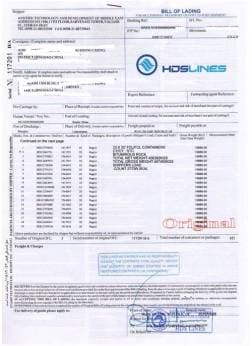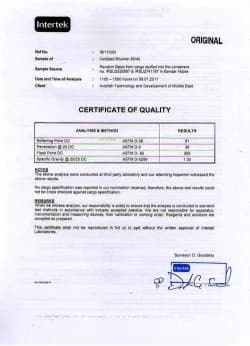Bitumen 160/220: High-Adaptability Binder for Temperate and Low-Stress Pavements
What Makes Bitumen 160/220 Distinctive?
The defining characteristic of Bitumen 160/220 is its high penetration index (between 160 and 220 deci-millimeters at 25°C), resulting in a softer, more pliable binder. This softness ensures outstanding flexibility at low temperatures and enables bitumen to maintain strong adhesion and surface integrity even under repeated expansion and contraction cycles. Bitumen 160/220 is valued for its ability to minimize cracking in cool or temperate climates and for surfaces not exposed to heavy, continuous axle loads.
Top Advantages of Bitumen 160/220
Outstanding Flexibility: Adapts to changing temperatures and subgrade movement, reducing the risk of surface cracks, raveling, and thermal fatigue.
Effortless Workability: Its softer consistency simplifies mixing, spraying, and compaction—enabling faster paving and maintenance cycles.
Smooth Surface Finish: Delivers exceptionally smooth, skid-resistant surfaces ideal for rural roads, driveways, bicycle paths, and parkways.
Cost-Effective Maintenance: Lower risk of structural failure means reduced repair frequency, saving money for municipalities and road agencies over time.
Excellent Adhesion: Maintains aggregate cohesion in chip seals, surface dressings, and slurry seal applications.
Common Applications of Bitumen 160/220
Bitumen 160/220 is the preferred choice for:
Rural and Low-Traffic Roads: Roads, lanes, and village streets where heavy truck traffic is limited but all-weather durability is needed.
Footpaths, Cycleways, and Greenways: Flexible enough to withstand daily usage, temperature shifts, and environmental wear.
Suburban and Residential Streets: Ensures safe, smooth pavement for family vehicles, public buses, and light delivery trucks.
Recreational and Park Facilities: Perfect for sports courts, jogging tracks, and open public areas requiring weather-resistant, smooth surfacing.
Airport Perimeter Roads and Service Tracks: Flexible enough to resist cracking, even with occasional vehicle access and varying weather.
Why Bitumen 160/220 Works Well in Temperate Climates
Many European countries and regions with mild winters and summers specify 160/220 for pavement construction. Its softness means the binder remains pliable in cold weather, reducing cracking due to freeze-thaw cycles, while its adhesive quality ensures performance through rain and seasonal changes. Unlike stiffer grades, 160/220 absorbs thermal stress and minimizes reflective cracking, making it an excellent preventive maintenance option.
Manufacturing and Quality Control
Bitumen 160/220 is produced by carefully refining selected crude oil using advanced distillation and air-blowing techniques. Every batch is tested for key properties—penetration, softening point, ductility, flash point, solubility, and more—to guarantee adherence to international standards (EN 12591, ASTM D946). Basekim provides full certification, batch testing, and optional third-party inspection for complete buyer confidence.
Packaging and Delivery Options
Basekim delivers 160/220 in the most efficient formats for your needs:
New Steel Drums: The standard for secure shipping and storage worldwide.
Jumbo Bulk Bags: Fast, efficient site handling and cost savings on major projects.
Bulk Vessel Shipments: Direct delivery to ports for large-scale infrastructure contracts.
Our logistics specialists handle export documentation, customs clearance, and real-time shipment tracking for smooth, worry-free delivery.
The Basekim Advantage for Bitumen 160/220
Global Export Experience: Trusted partner for municipal, commercial, and public-sector projects across Europe, Asia, and Africa.
Strict Quality Management: Consistency in every drum, every shipment.
Responsive Support: From technical advice to custom packaging, our team is ready to help.
End-to-End Service: From quote to delivery, we ensure your supply chain stays on schedule and your pavement meets every requirement.
Frequently Asked Questions (FAQ)
Is Bitumen 160/220 suitable for heavy highways?
No, 160/220 is best used in low-traffic or secondary roads, not for highways with constant heavy vehicles. For heavier loads, consider a lower-penetration grade like 60/70 or 40/50.
Can it be used in cold climates?
Yes! Its flexibility helps prevent thermal cracking during freeze-thaw cycles, making it a strong option for regions with seasonal temperature swings.
What documents come with each shipment?
You’ll receive a Certificate of Analysis (COA), MSDS, Certificate of Origin, and optional third-party inspection.
What are the packaging options?
160/220 is available in new steel drums, jumbo bulk bags, and by bulk vessel—just specify your preference when ordering.
How do I get a quote or technical advice?
Contact Basekim’s team for tailored pricing, logistics support, and full technical guidance.
.


